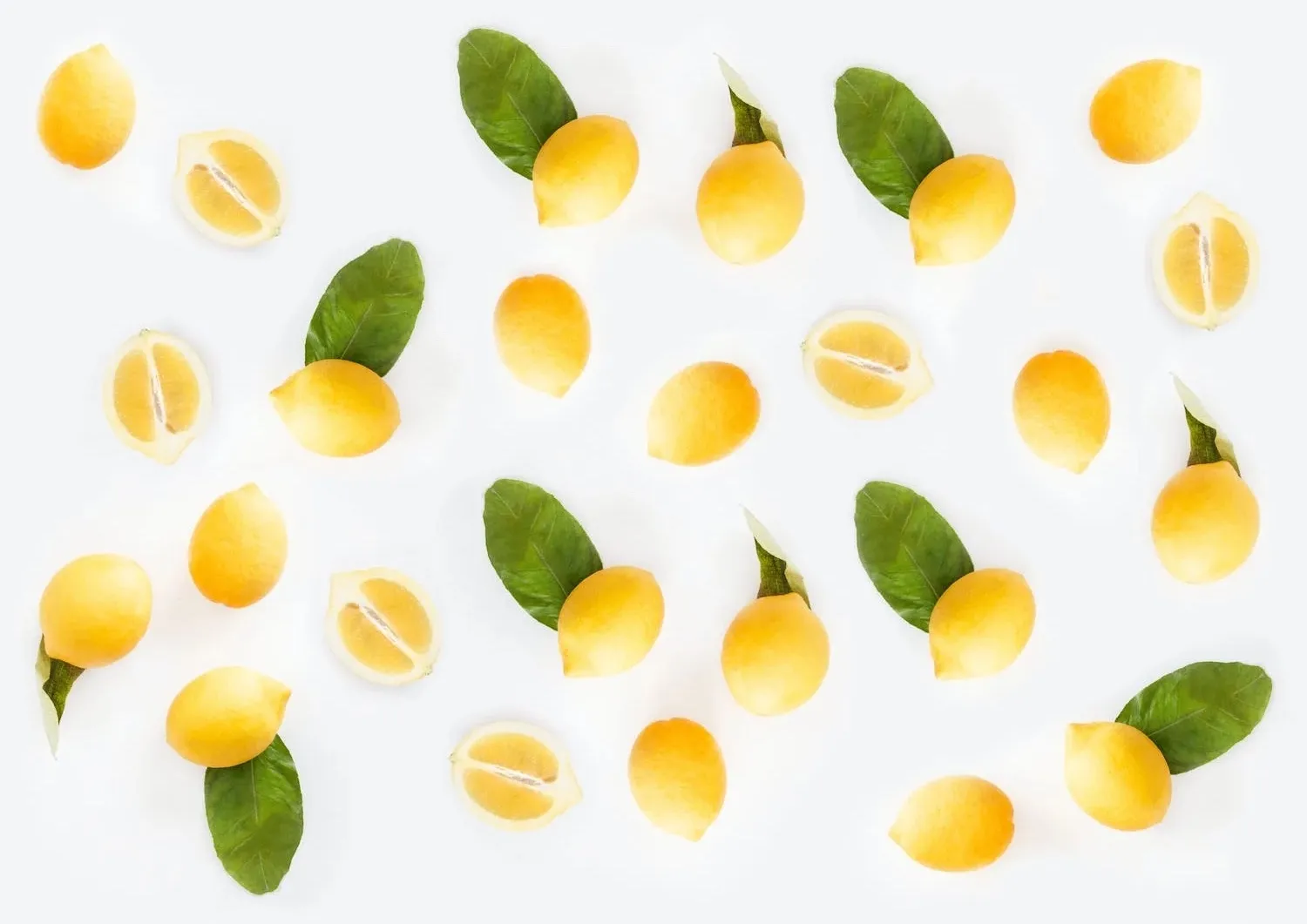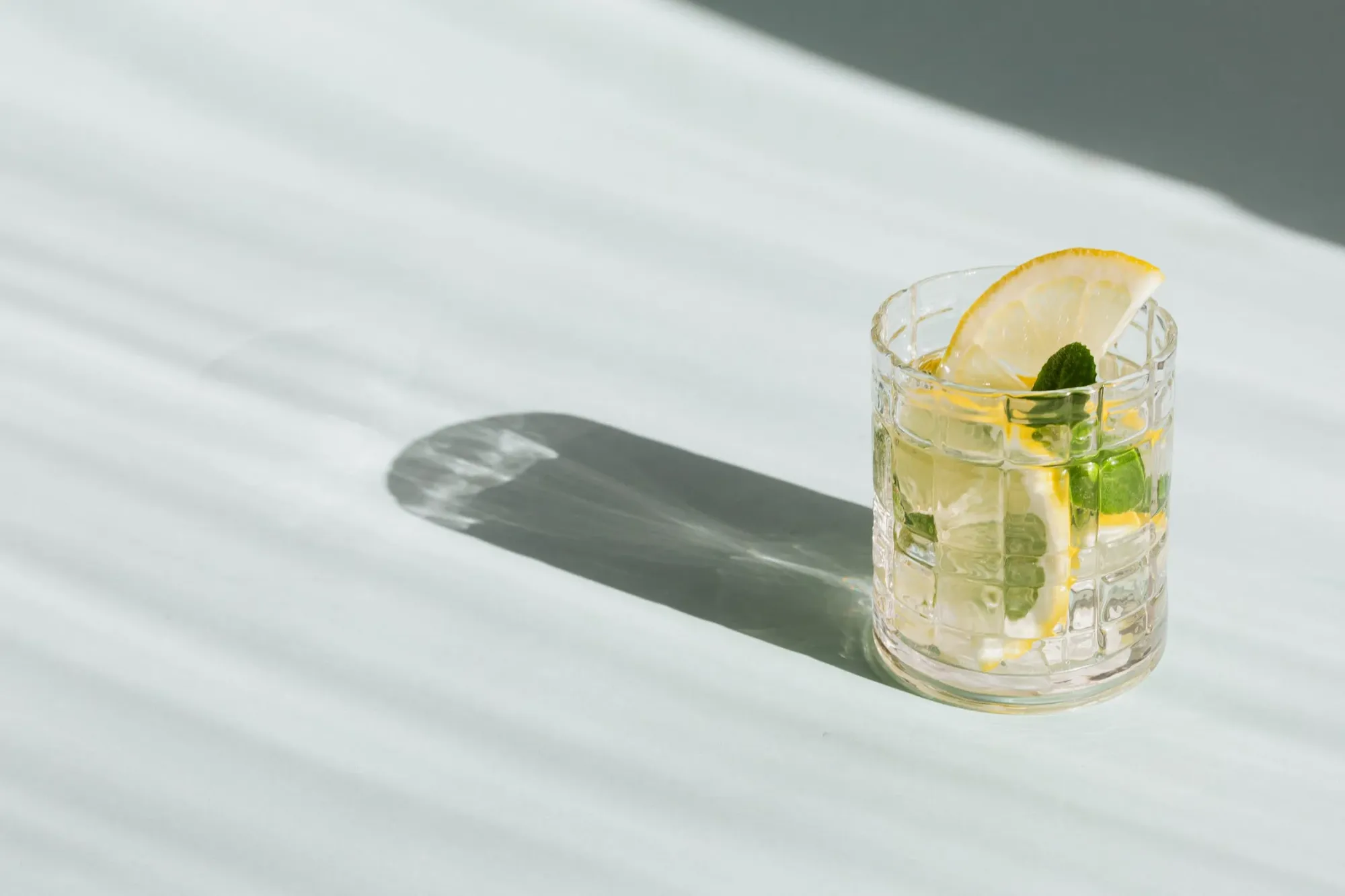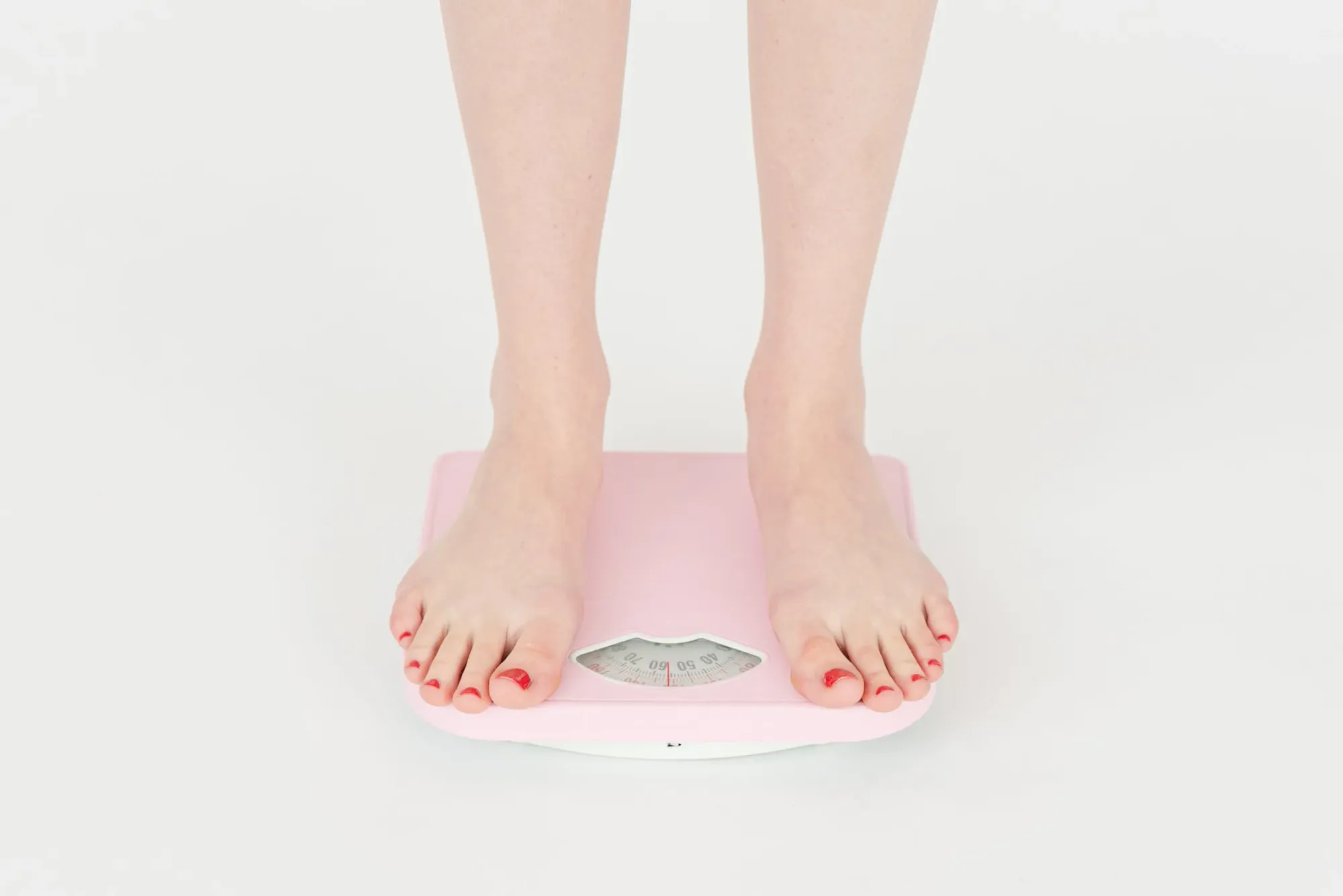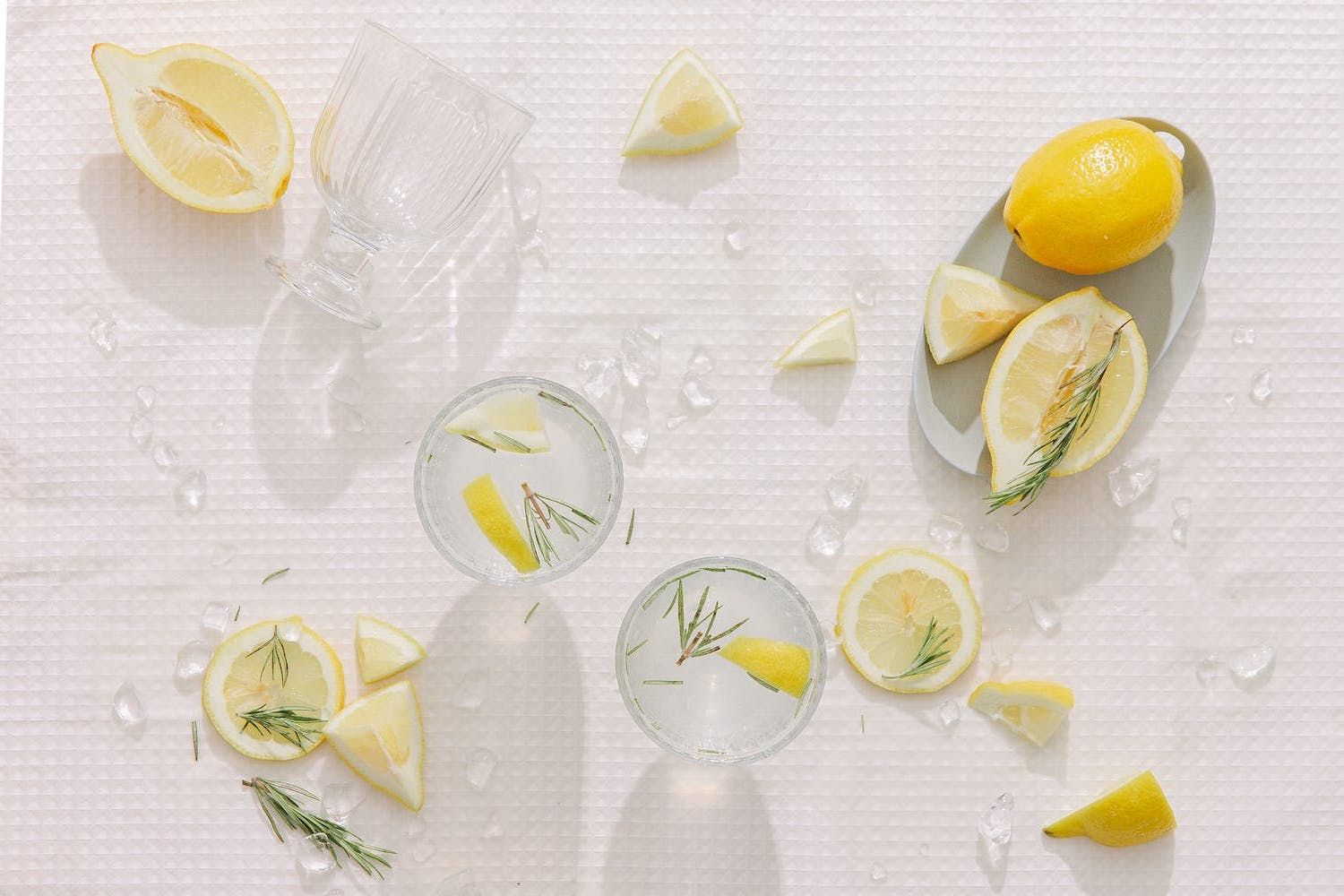If you’re new to fasting, you might wonder if certain fasts can even be called fasting. While strict water fasting uses zero calories, a dry fast goes a step further and uses zero water! But what about fasts that focus on or introduce a single type of food or liquid? For example, the lemon water fast.
Lemons contain calories. Although they have very few calories, these tangy citrus fruits still provide some nourishment. In some fasting circles, consuming lemon water would be considered breaking a fast or not even a fast. In this article, we’ll explore the lemon water fast and some of its benefits for overall health.
Before you start a fast, whether intermittent fasting, dry fasting, or even changing the foods you eat or the liquids you consume, it is always best to speak to a professional healthcare provider. They can advise a meal plan suitable to your dietary needs and assist you throughout the fast, so you do it safely.

What is Lemon Water Fasting?
Not too long ago, fasting was once only a part of religious or cultural practices. Over time, people began to observe the effects of fasting from a more scientific and medical perspective. Noticeable changes were occurring to a person’s health as well as their spiritual well-being.
Soon, fasting methods of all kinds were popping up all over the place. Many of these methods were based on early religious teachings. As fasting evolved, popular diet trends modified these fasts to include intermittent fasting as well as different fasting formulas. You can now find every kind of fasting method under the sun, but do they all do what they claim they do?

A lemon water fast was one such method that gained some popularity. People began using it to reduce the amount of stress used for digestion so that organs like the kidneys and liver could get a break and start to heal or function properly. Despite its popularity, many people don’t consider a lemon water fast a real fast.
But what is lemon water? Lemon water is basically water infused with lemon juice. You can have it as a warm or hot drink or cooled and poured over ice. You may enjoy drinking lemon water in the morning or prefer sipping on a glass just before bed. And although the ratio of lemon to water may vary from recipe to recipe, the ingredients stay the same. Lemon and water.

Health Benefits of Intermittent Fasting With Lemon Water
When you squeeze a fresh lemon, cut up a few lemon slices, or add lemon juice to plain water, you create a tart, zesty and uplifting drink in a matter of seconds. But the great news is that you create a drink containing all of the beneficial nutrients that citrus fruits offer. Let’s look at some of the main health benefits of lemon.
Vitamin C
You hear of Vitamin C every cold and flu season – and for a good reason. Not only does it help fight off the symptoms of colds and flu, but it also helps strengthen the immune system, creates healthier-looking skin, promotes better eyesight, and tackles a host of other health problems and concerns.

B Vitamins
Along with the power of vitamin C, lemons contain B1, B2, B5, and B6. Each of these B vitamins plays an essential role in human health. B1 helps the body turn carbohydrates into fuel, and Vitamin B2 aids cellular production.
Lose Weight
Most fasts are designed to be fat-burning programs. Any time you stop eating for a while or have a calorie-restricted diet, you are bound to shed a few pounds. The idea of a calorie-free diet or minimal calories throughout the day means you will use the energy stores found in fat cells instead of the meals you eat. When those fat cells are all used up, weight loss is the result.

Lower Blood Sugar
When you reduce your calorie content, you pull energy from stored fat. This is great for weight loss and helps balance a person’s blood sugar levels. However, not getting enough sugar or carbohydrates for an extended period can be dangerous. If the levels drop too low, a person can go into hypoglycemia.
Hypoglycemia can create many problems, such as headaches, blurred vision, confusion, slurred speech, drowsiness, and numbness. If these levels continue to drop, it could even lead to seizures, coma, and possible death. It is always best to consult a doctor about monitoring the fast before fasting. They would watch the glucose in your blood before the fast, during the fasted state, and after the fast.
Kidney Stones
Drinking plain lemon water can do more for your kidneys than if you simply drink water. The citric acid found in limes and lemons may help reduce the risk of calcium build-up in the body, which may lead to kidney stones. Drinking lemon water during your fast may help break down the calcium and prevent the onset of kidney stones.
Does Lemon Water Break A Fast?
In technical terms, yes. Fasting means zero calories; therefore, any calories consumed are still considered breaking a fast, even if just a few. Lemon water contains around 11 to 30 calories per 8-ounce glass. You are changing your calorie intake, whether it’s lemon juice from a bottle or freshly squeezed lemons.
Even though lemon water contains around 11 to 30 calories per 8-ounce glass, it doesn’t really hinder the full effects of intermittent fasting. Having a little lemon juice in moderation while you fast adds flavor, refreshes your tastebuds, and allows your body to heal and cleanse.

Can You Drink Lemon Water While Water Fasting?
Can you have a glass or two of lemon water while fasting? The answer is yes. If you are doing a wet fast, you are already consuming water to stay dehydrated. During intermittent fasting, water plays a key role in keeping you hydrated.
Water is essential to human life, but it also helps keep parts of the body functioning properly. Joints such as the knees and elbows require water to cushion and protect those areas, and skin thrives on water. Adding a little lemon juice can help keep hunger pangs at bay, help boost your metabolism, and stay hydrated to help you get through the fasting period.
Here are a few things to keep in mind when you water fast and decide to add a bit of lemon water:
- Water is excellent for overall health but can be hard on the teeth. Over time water can break down the enamel on your teeth. Since lemons are highly acidic, they can be extra dangerous for your teeth. You should drink lemon water through a straw to avoid this problem.
- Avoid using store-bought lemonade as a substitute for lemon water. These products are loaded with added sugar – something you want to avoid when doing a fast. You want your liquids to be sugar-free and as close to calorie-free as possible so that your fast can do its thing and not fully break your fast.
Lemon Water After a Dry Fast
A dry fast means that no eating and no water are allowed during the fast. The idea behind a dry fast is to eliminate anything from entering your digestive system. It means that you can enable the systems to clean themselves and repair any damage done from, for example, eating a highly acidic diet or consuming alcohol.
A dry fast, even intermittent fasting, puts the body into ketosis or burning fat instead of glucose from the foods we eat. At the same time, a dry fast helps to boost metabolism in fat cells by taking hydration from the water inside the fat cells. An intermittent fasting program can also offer several health benefits, such as weight loss, low blood pressure, and improved brain function.
Drinking lemon water as you come off your dry fast is a great way to keep your PH in check with a more alkaline constitution as you head into your “fed state” or start eating solid meals again. The refeeding part is one of the most important stages of dry fasting. It is very important to approach it carefully to avoid varying degrees of refeeding syndrome.
Another alternative is snake juice, a combination of Himalayan pink salt and a salt-free potassium source. It gently helps you beat any sugar or food addictions while forcing your body into healthy ketosis faster. There is some debate as to whether or not you should be supplementing electrolytes right after a dry fast. Whether you decide to do a hard or a soft dry fast may also affect your rehydration schedule.
Lemon Juice and Other Lemon Water Alternatives
Since lemon water is a low-calorie beverage, you can consume it throughout your fast without hindering the effectiveness of your fast. However, if the taste of lemon slices in water and lemon juices isn’t your thing, a few alternatives can offer a similar level of nutrition and calorie count.
Lime
Lime water is basically the same as plain lemon water, only that it uses limes. Add just the juice of the lime to plain water and drink it at room temperature or cold. It is excellent for staying hydrated throughout your fasting period and offers the same nutrition as lemons.

Green Tea
Green tea is a low-calorie beverage loaded with antioxidants. Coming in at around 2-3 calories per serving, it can keep a person hydrated, suppress hunger, and offer a few health benefits like lowering cholesterol and blood pressure. Just be sure to drink only a few cups of your green brew since it does contain caffeine. Without food in your system, you’ll feel the effects of the caffeine rather intensely.
Black Tea
Just like green, black tea is another excellent alternative to lemon water. With only two calories per serving, it will barely affect your fast. However, just like other caffeinated teas, keep the amount you consume low to avoid the effects of caffeine overload, and don’t add sugar. You want to avoid any sweeteners so that your organs only need filter out the tea and water.

Herbal Tea
Herbal tea is another one of those healthy beverages you can consume during a fast and not create too many problems attaining your fasting goals. Although there are slightly more calories than green or black tea, there are still only about 37 calories in a cup of your favorite herbal brew.
Coffee
When we mention coffee, we’re talking about plain black coffee. Skip the lattes and cappucinos! A cup of plain black coffee contains around two calories, has some caffeine to kickstart your day, and won’t take away from the fast. Again, to avoid caffeine jitters, keep your coffee intake at around 1 cup during your fast for just the right amount of energy.

Apple Cider Vinegar
One tablespoon of apple cider vinegar mixed in an 8-ounce glass of water is also a great beverage to have during intermittent fasting or as part of your beverages during your eating window. This fermented beverage works wonders at getting you through the fast. Diluting a small amount added to water won’t cause acidity, and the low three calories per glass are perfect for keeping your fast on track.

Conclusion
Entering into a fasting state, such as a water fast, typically means you don’t eat anything. Entering into a dry fasting state means you don’t eat or drink any liquids. Allowing the stomach to have a break from food and beverages is how fasting helps the body’s systems heal and repair themselves.
Adding a bit of lemon water may break your fast, in the traditional sense, but it can also help people who have never fasted before, keep a person on track with the reduced calorie diet, and help them achieve their goals.
Whether the fast is to help promote weight loss and burn fat, reduce insulin levels, lower blood pressure or simply “reset” for better digestive health, a glass or two of lemon water can help make the fast just that much more enjoyable.

